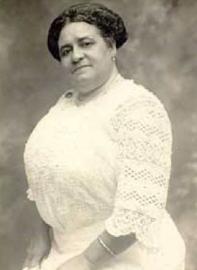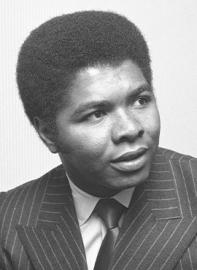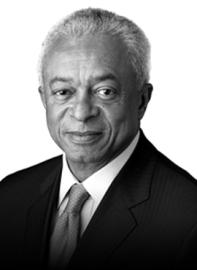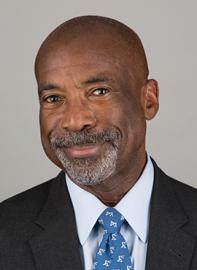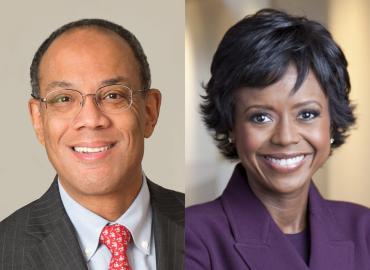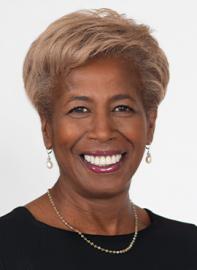Since 1976, the US has designated February as Black History Month to honor the achievements and the resilience of the Black community and celebrate their central role in US history. FIA is taking this opportunity to shine a spotlight on individuals who made significant contributions to the financial industry during the course of the country's history. These professionals, some of whom have rarely been recognized for their achievements, helped break down barriers and open opportunities for many who were to follow.
Maggie Lena Walker
Maggie Lena Walker was the first African American woman to charter a US bank – the St. Luke Penny Savings Bank in 1903. The bank, based in Walker's hometown of Richmond, Va., was a source of economic growth and financial security for the Black community and served a membership of more than 50,000 in 1,500 local chapters. Walker was the bank’s first president and served as chairman of the board when it merged with two other Black-owned Richmond banks. The new Consolidated Bank and Trust Co. continued to be run by African Americans until 2005.
Norman McGhee Sr.
Norman McGhee Sr., an attorney and real estate dealer, founded the first Black-owned brokerage firm to be licensed by the National Association of Securities Dealers, helping to pave the way for more African Americans to start financial businesses. The clients of McGhee & Co., which was established in 1952, were primarily Black and were encouraged to gain a stronger foothold in the economy through stock investment. McGhee created a mutual fund in 1966, Everyman's Fund, which focused on investing in blue-chip stocks.
June Middleton
In 1964, June Middleton became the first female African American stockbroker employed by a member firm of the New York Stock Exchange, leading the way for a small group of African American women to enter the brokerage scene. Middleton worked for Hornblower & Weeks and reportedly learned to interpret the stock market tables while attending a Manhattan public school.
Joseph L. Searles III
In February 1970, Joseph L. Searles III broke a 178-year-old barrier on Wall Street by becoming the first African American member and floor broker on the NYSE. At the time of his appointment, Searles was a partner at Neuberger, Loeb and Co. Searles's time at the exchange was short-lived – he gave up his seat in November 1970 and went on to work at Manufacturers Hanover Trust Co., now JP Morgan Chase – but it had a lasting effect. During the following years, there was a steady increase in African Americans in financial services, including the entrance of the first two Black-owned member firms on NYSE: Daniels & Bell and First Harlem Securities.
Travers J. Bell Jr. and Willie L. Daniels
In 1971, brokerage firm Daniels & Bell became the first Black-owned firm to buy a seat on the NYSE. The firm was founded by Travers J. Bell Jr. and Willie L. Daniels, who had worked in financial services for about ten years. Daniels & Bell successfully underwrote securities of minority-owned business and participated in large distribution syndicates formed by other investment banks. While Daniels left the firm in the mid-1970s to go into the restaurant business, Bell remained and went on to become chairman of the New York district of Wall Street lobby group, the Securities Industry Association.
Russell L. Goings Jr.
Russell L. Goings Jr. was founder of First Harlem Securities, the second Black-owned brokerage firm to own a seat on the NYSE in 1971. Goings structured the company to include several principals with voting stock, which assisted African Americans in joining the stock exchange. He later became the first African American to manage assets for a Fortune 500 company as well as the first to have a national contract from the Small Business Administration to bring more African Americans into franchise businesses.
Stanley O'Neal
Stanley O'Neal was chairman and chief executive of Merrill Lynch from 2002 until 2007 after serving in numerous senior management positions at the company prior to this appointment. O'Neil was the first African American to head a major Wall Street firm and one of only four Black CEOs of Fortune 500 companies at the time.
Gordon Rutledge
Gordon Rutledge began his career as the commodity news wire editor at Merrill Lynch and later became a trader for the firm. Over 30 years, Rutledge became an accomplished broker/trader at the New York Mercantile Exchange where he ran and established successful energy-related businesses. After being elected to the Nymex board of directors in 2000, he was selected to lead the launch effort of the Dubai Mercantile Exchange in 2005 as its first CEO. He then served as senior advisor to the Nymex chair and management team until its launch in 2007.
Douglas E. Harris
Douglas E. Harris was one of the first Black general counsels at an FCM, taking on the position at JP Morgan Futures in 1982 after joining JP Morgan in 1979 as assistant general counsel. He worked at JP Morgan for more than a decade before being appointed senior deputy comptroller for capital markets at the Office of the Comptroller of the Currency, where he was responsible for the regulation and supervision of national banks' capital markets activities, as well as the development of risk management policies and guidelines. In 2001, Harris became chief operating officer and the first Black general counsel of an exchange and clearing house, BrokerTec Futures Exchange and BrokerTec Clearing Co., before taking on the role of managing director at Promontory Financial Group. In 2021, Harris was inducted into the FIA Hall of Fame.
Steven Spence
Steven Spence began his career at Merrill Lynch in 1987 and became manager of the firm's interest rate futures business at the Chicago Mercantile Exchange, eventually becoming managing director for the firm. During his career with Merrill, he was posted to Paris, then Tokyo, in both cases as manager of futures and options. He served on several industry boards, including Matif’s international advisory board, the Commodity Futures Trading Commission's financial products advisory board and FIA’s Japan Chapter. He also served as chairman of FIA from 2000 to 2001. In 2005, Spence joined the FIA Hall of Fame.
John W. Rogers Jr. and Mellody Hobson
John W. Rogers Jr. and Mellody Hobson are co-CEOs of Ariel Investment, a Chicago-based investment firm with $15 billion in assets. When Ariel Investments was founded by Rogers in 1983, it was the first Black-owned mutual fund firm in the country. Earlier this month, it launched Ariel Alternatives, a private fund business with a strategic initiative to scale sustainable minority-owned businesses. The initiative aims to close the racial wealth gap by generating jobs, economic growth and equality within underrepresented populations from entry level to the boardroom.
Brian Argrett and Wayne-Kent Bradshaw
In August 2020, City First Bank in Washington, D.C., and Los Angeles-based Broadway Federal Bank agreed to merge to create the biggest Black-led bank in the US. The deal, scheduled to close in the first half of this year, comes at a time when more banks are focusing on addressing racial inequality. City First Bank CEO Brian Argrett was named CEO of the merged firm, while Broadway CEO Wayne-Kent Bradshaw was named chair of its nine-member board.
Sharon Bowen
Sharon Bowen was the first African-American commissioner appointed to the US Commodity Futures Trading Commission, serving from 2014 to 2017. Prior to that, from 2012 to 2014, Bowen served as vice-chair and then acting chair of the Securities Investor Protection Corporation. Before these government positions, Bowen had a three-decade career in corporate and transactional law as an associate at Davis, Polk & Wardwell and later as associate and partner at Latham & Watkins. She currently serves on the board of the Intercontinental Exchange and in 2021 was named chair of the New York Stock Exchange, making her the first Black woman to hold the position in history. In 2022, she was inducted into the FIA Hall of Fame.
.There are, of course, many, many more individuals who have contributed to the ascent of Black Americans on Wall Street and beyond. While Black Americans have long been an integral part of the financial industry, the journey towards greater representation and inclusion continues.

